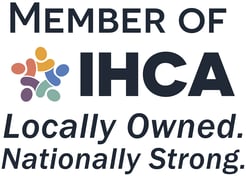In the first weeks, months, and years of a child’s life, they spend a lot of their time in doctors’ offices getting their required shots before they can go to school. After their early years, most teenagers and adults forget that some vaccines need to be updated throughout the rest of their lives in order for them to stay effective. For seniors, it becomes incredibly important that they keep up with their vaccine schedule so that they stay as healthy as possible. So why exactly do seniors still need vaccines, and how can they stay on top of a regular immunization schedule? Learn more about how vaccines affect seniors and how caregivers can help them stay up-to-date.
Why Are Vaccines Important for Seniors?
As a general population, seniors are more prone to long-term complications if they get sick. So what’s one of the easiest ways to prevent them from getting sick? Make sure they get the vaccines they need! Here are just a few reasons why seniors need to stay current with their immunizations:
- Many seniors suffer from comorbidities, such as heart disease or diabetes, that can make preventable diseases far more serious when they catch them.
- Seniors are more likely to suffer hospitalization or even death if they catch a preventable disease.
- Many seniors have had other conditions that make them more susceptible to these diseases. For example, many seniors had chickenpox as a child, which can lead to shingles in their adult years.
(Vaccines.gov)
What Vaccines Do Seniors Need?
This list does not include every vaccine that seniors need to consider, and especially if you have chronic health conditions, it’s important that you do your own research about which vaccines will and will not work for you! The top four vaccines that most seniors should get are:
- Influenza: many people are hesitant to get the flu shot annually, as
- Shingles
- Tdap (Tetanus, Diphtheria, and Pertussis)
- Pneumococcal
For more information, check out this Immunization Awareness PDF from our partner, ClearCare.
How Can Caregivers Help Seniors Keep Up With Vaccines?
Go to Their Doctors’ Appointments
Be an advocate and communicator, making sure the doctor knows all important health information about the senior and making sure that the senior understands what their doctor is saying. An extra set of eyes and ears can help the senior keep up with their vaccinations and medications.
Provide Transportation
Many seniors are not safe behind the wheel of a car, and thus do not feel comfortable leaving their homes. If you provide transportation when they need a vaccination, they may be more likely to go (and less likely to get into an accident!).
Check Out Our Blog: Senior Safety On The Road
Know Their Chronic Health Conditions
This point goes back to communication. Communicate with the seniors in your life, knowing their health conditions and any recent changes to their health. Keep notes that you and the senior can reference!
Keep A Chart to Track Their Vaccine Schedule
It can be a challenge to keep up with every appointment and vaccine a senior needs, so why not make a chart? Use this helpful Adult Timeline Vaccine Chart from the CDC or create one that works for the senior in your life!
Conclusion
Main point: vaccines may be even more important for seniors than they are for infants and children! While most children have robust immune systems and can fight off infections, many seniors suffer from weakened immune systems that make disease management much harder. Senior still need vaccines, and with the help of medical professionals and well-informed caregivers, they will be able to get the vaccines that match their own health needs!
- Public Health in the Age of COVID - September 15, 2021
- World Elder Abuse Day June 15, 2021 - June 28, 2021
- World Elder Abuse Day - June 15, 2021



